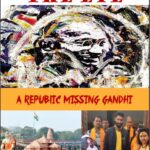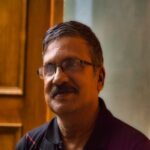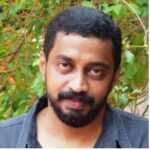Across Decades
Sylvia Nair 1989 IC
Funny things, memories.
One is sure one possesses nothing short of a supercomputer for the brain. Notwithstanding that tall belief, when the day of reckoning arrives, it is embarrassing to discover that what actually occupying this bone bubble is a slow, unwieldy and awkward PC, running on DOS.
So be it.
It is 1985. The monsoons are in full swing. I am standing at a window, watching the grey sky emptying out in muddy pails into the tarred road outside. The sky is somewhat ominous. This is an unfamiliar town. People talk fast, their accents strange. Accustomed lifelong to the slow drawl of Central Travancore Malayalam, this is quite bewildering. Once the jubilation of having aced the engineering entrance and the novelty of a five hour train journey have worn out (naturally), I hate to admit it, but I am scared. But both of us, my father and I, pretend nonchalance.
Tomorrow we report to the college for confirming admission. I am absolutely clueless what “Instrumentation & Control Engineering” is supposed to be.
The college, the revered stepping stone to dreams, is an imposing structure. Even more so, considering its striking backdrop of bluish green mountains.
The entrance is festooned with artwork- cartoons, social commentary, posters that proclaim some mysterious entity named Stabilizers. Talk about being pitchforked! This would be sacrilege in my old place, where we had statuettes of the saints and the Virgin Mary and the odd picture of Pope Paul VI thrown in to break the monotony.
The corridors are reasonably wide and spacious but today it is a crush- of nervous newcomers accompanied by their parents. And standing strategically apart, intimidating knots of senior boys- sizing up the current year’s inflow.
All this activity is absent on the first floor. A chalk arrow on the wall pointed to a particular door there. The arrow had a hastily scrawled caption in Malayalam- Puli mada. Leopard’s den. The occupant of this room was the Principal!
This eminent personage (with a short stature and an even shorter temper) later taught my class Applied Mechanics; I used to wonder if he practiced that menacing expression at home so that he could use it on the hapless victim of the day.
I want to go back home. To the safe, familiar and comforting world, just a train ride away. So, probably, do most of us newcomers. But we don’t. We stay put. Trying to adopt a bravado we are far from feeling.
We stayed. And survived. And tentatively tested our wings.
These were the first years of our personal independence. The years when we found our own feet, so to speak.
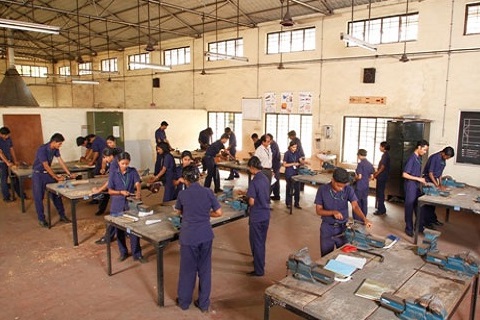
The congested hostel rooms definitely taught us the value of coexisting in harmony. Friendships were forged, many of which have stood the test of time, distance and age.
Despite the searing summer heat and the accompanying water shortages (which were an annually repeated performance) the stark natural beauty of the land wove its own spell. Even if I want to, I cannot forget those flaming sunsets, lone Palmyra trees silhouetted in the distance and the summer nights when smoldering grass fires slowly burned away like jewels on the mountain sides.
Coping with the curriculum was a different matter altogether. For the first time in my student life, I found myself struggling. Every other person had been a high achiever in his or her student lives as well. And the first year with its too heavy load (Literally and figuratively. I am looking at you-Smithy Workshop; that is, if you exist today. You were a fossil even then.) was truly an uphill haul.
Some of the most wonderful memories that I treasure are those of the annual Arts festivals. Their sheer vibrancy- in music, dance, drama and art- was astounding.
I have no idea how I first stumbled into the short story, essay, poetry scene here. In the ragging sessions of the early days, a standard question was about the likes/dislikes/hobbies of the interviewee. I was a reader and luckily my three decade old earlier college, run by nuns, had the good fortune of owning a decent library. Local booksellers, even in small towns, stocked Russian literature published by Progress Publishers and Raduga Publishers, Moscow, in those days. Moscow, Kiev and Ukraine felt as familiar as the neighbouring district. The ragger laughed in derision when I mentioned The Brothers Karamazov.
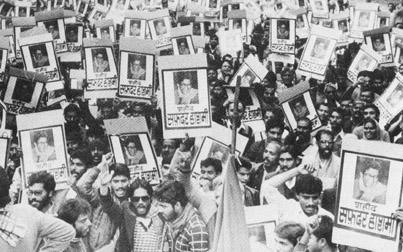
In those last years of that fading decade, we left behind our villages and small towns and minor cities and learned to look at the world on our terms. When a thirty four year old firebrand activist called Safdar Hashmi was killed in January 1989, the reverberations reached our deep south campus. It made no difference that hardly any of us had a working knowledge of spoken Hindi then. What mattered was that a wrong was committed and that our voices too joined the chorus against it. If he were alive, I wonder what Safdar Hashmi would have made of today’s India. But he would definitely have been proud of the continuing legacy of social awareness and courage in its Universities.
This life and those years- they took a bunch of diffident youngsters and taught them to think. They also taught us to broaden our vision and to dream. And to find and hold our places in a fast changing world.

